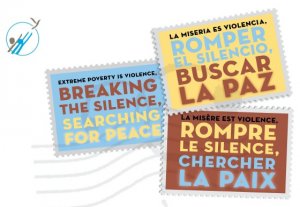Statement by Itamar Silva Coordinator of the Brazilian Institute for social and economic analyses (IBASE), in Rio de Janeiro (Brazil)

Concluding plenary session – Conclusions and commitments
The Merging of Knowledge and the Pedagogy of the Oppressed
I come from Brazil, from Rio de Janeiro, and I am linked to the Rio Favela Movement. I was born in one of them, and I am still living there today. It’s from there that I look at the world and do my job as an activist/researcher. It is important to say that in Rio de Janeiro, there are more than 700 favelas, where at least 20% of the city’s population live. These people have built their houses in the most difficult areas, where there were no public services or infrastructure. Over the years, they obtained significant improvements in their living conditions, and today, they fight both for the rights enjoyed in the city and to be allowed to continue living where they have built their homes. It’s probably because of this experience that I was invited by ATD Fourth World to participate in this international colloquium that questions the theme of extreme poverty and its link to violence.
Creating the conditions for a dialogue between people
During these three days of meetings, I have experienced something very special that, I am sure, will have an impact on my personal life and on my work. The diversity of people, languages, and cultures gathered in this colloquium confirms what we have been saying : all you need, for people to understand each other, is to create the conditions for a meeting and to allow them to engage in dialogue.
Haitians, Guatemalans, French, Brazilians, Lebanese, Peruvians, Americans, British, Burkinabés, among others – each one spoke their own language, but all of them were open to dialogue and were ready to listen to one another’s experiences. It is obvious that differences exist, and will continue to exist, and during this colloquium, we had to take some time to make sure concepts such as “violence”, “extreme poverty” or “peace” were culturally understood by everyone, according to their world-view and their practical experiences.
A path towards peace
So, it was interesting to hear the different opinions expressed during the debate, and to reach conclusions in which everyone felt recognized. Let’s take this one, for example : “Peace is a path, that begins from a person to reach the community, and this community, we have to build it with people from other countries.”
This idea, built by ATD Fourth World activists, reveals the wisdom of a people who know that building peace is a job that requires a great number of people, but also that it must be born of personal motivation and be based on concrete facts, and that it is strengthened within the community. It is a process that is built through everyday practice. “We can’t fight for peace without knowing the poorest people.”
A meeting that strengthens our courage and our belief
After these meetings, which were very rewarding on a personal level, as well as for my work as a researcher and activist in the Rio Favela Movement, I keep in mind some learning experiences and commitments, based on the collective thinking of all the participants :
Extreme poverty is a violence, and we have to ensure it is recognised as such. We must put an end to indifference and not accept the invisibility of poverty by framing it in terms of rights. Doing this is also a way of fighting for justice.
The peace we are looking for requires an acknowledgement of the other, and of their humanity, as opposed to the process of violence, wherein the other is ignored.
Peace is not a passive state, but a process of building and fighting that demands active participation.
It was important to meet once again, within the methodology used – the Merging of Knowledge – the principles of the Pedagogy of the Oppressed, which was set up by Brazilian teacher Paolo Freire and which was of great importance for the Popular Education movement in Brazil.
Cultural and linguistic diversity, which is sometimes used as a pretext to not bring peoples together, made all the difference in this meeting. The human wealth gathered here in this Colloquium strengthens our courage, and our belief that the world can become better. It is necessary to learn what this people, scattered and discriminated against all over this planet, do to resist, survive and keep on transmitting hope.

